A special report for Saving Iceland by Dónal O’Driscoll
Preface
Glencore are the majority shareholder of Century, the owner of one operational and one half-built smelter in Iceland, it’s key operations for aluminium smelting. But who are Glencore and what are the implications for Iceland? This comprehensive article profiles the world’s biggest commodity broker, who’s only comparable predecessor was Enron. The profile covers the reach and grip of Glencore’s domination of metal, grain, coal and bio-oils markets, allowing it to set prices which profit very few and are detrimental to many. It shows the tight web of connections between the major mining companies and Glencore through shared board history and shared ownership of assets, cataloguing key shareholders (and board members) who’s stakes make them larger shareholders than institutional investors in ownership of Glencore. These connections include Rusal’s co chair Nathaniel Rothschild, a financier with a $40m investment in Glencore, and a personal friend of Peter Mandelson (former EU trade commissioner and British politician) and George Osborne (UK Chancellor).
The article details the human rights and environmental abuses of Glencore at it’s many operations, including the 2009 killing of Mayan indigenous leader Adolfo Ich Chamán who spoke out about Century’s activities in Guatemala under CEO-ship of Peter Jones (still a Century board member). It claims that Glencore is higher than most in the running for most abusive and environmentally detrimental mining company, going where lesser devils fear to tread – trading with Congo, Central Asia and embargoed countries such as Saddam Hussein’s Iraq and apartheid South Africa. Glencore founder Marc Rich was involved in trading embargoed Iranian oil, and fled the United States in 1983 accused of insider dealing and tax dodging over Iranian deals, becoming one of the 10 fugitives most wanted by the FBI, until he was pardoned by Bill Clinton. Glencore is still run by two of his main men.
Introduction
From Kazakhstan to Australia, taking in the views of Zambia, war-stricken Congo and Angola, cutting across from Siberia to Iceland is a network of mining and metals companies with a catalogue of environmental and community abuse in their wake. In Iceland its face is Century Aluminum, but behind them, at the heart of this web lies the secretive commodity broker Glencore International of Switzerland. Glencore is about to launch one of the biggest placement of shares, raising $10 Billion, making a lot of people very rich and valuing itself as a company worth $60Bn. In this article we start to throw a spotlight on just how Glencore makes its money and how Iceland is just one of many victims of a company built on ruthless exploitation.
On the surface, Glencore’s wealth comes from the buying and selling of the world’s commodities (see below for more detail), specialising in grain and metal markets. However, what is unusual for a commodity broker is that it invests heavily in the very companies whose produce it is trading. Its interests are global, from the breadbaskets of Russia, to zinc mines in Kazakhstan, copper and cobalt interests in Congo and Angola, and aluminium in Iceland.
It is the latter that ties Glencore into the Icelandic economy through its 44% ownership of Century, as well as membership of the board of directors. Century is the owner of the Grundartangi smelter and is behind the building of another plant at Helguvik, for which a number of controversial new geothermal and hydro power plants would need to be built. There is also a doubt if enough energy to run a smelter in Helguvík actually exists. Glencore controls 38% of the global trading market in aluminium. Of this, 50% of this comes from Century and UC Rusal, the Russian Aluminium giant (of which Glencore owns 8.8%).
The result is a private network of personal ties and business relationships so tight that what matters to Century also matters to Glencore. The Icelandic government may be doing deals with Century, but Glencore is always present in the background, bringing unsavoury alliances to this particular bed. There are a lot of unanswered questions over how and with whom Glencore chooses to invest. One only has to look at its principle partners and deals to see it does not shy away from exploitation of war torn countries or making alliances with men whose fortunes carry with them heavy taints of corruption. Despite all the exuberance in financial circles at the profits to be made by the Glencore share offering, a few more level-headed traders and journalist are wondering if there should be more caution, especially given how little is known about the inner workings of the company and just how manages to pull off so many exceptionally profitable deals.
It is also worth noting that the last time the world saw such a commodity broker dominate a market to this extent ended up going very sour – that commodity broker being Enron.
Who are Century Aluminum?
Century is a company that specialises in smelting aluminium. It was founded in 1995 when various interests controlled by Glencore were brought together. In 1996 it was spun off as a public company.1 As well as its Icelandic sites, which it owns outright, it owns or has a share in aluminium plants at Ravenswood, West Virginia, at Hawesville (100%), Kentucky (80% owned with the rest owned by Glencore), and at Mt. Holly, South Carolina (50%, the other half owned by Alcoa Inc). In the past it has had interests in the Congo. As a global player it is the 10th largest producer.
Its ownership remains dominated by Glencore at 44%, with the majority of the other shareholders being held in relatively small amounts by US institutional investors (hedge funds etc.).2 It is clear from Century’s website that Iceland is a major part of their business and strategy and three executives of its Icelandic operations are listed as key management.
Key People
Gunnar Gudlaugsson, Plant Manager of Nordural Grundartangi
Joined Nordural in 2008, from Straumsvik, the Rio Tinto Alcan smelter, where he had served for over ten years.
Ragnar Gudmundsson, Managing Director of Nordural
Nordural is the holding company for the Icelandic interests of Century. Previously Chief Financial Officer of Basafell, prior to which he was a senior manager at Samskip, both leading companies in Iceland.
Wayne R. Hale, Chief Operating Officer
Joined Century in 2007, having previously been with Sual in Russia (it was Sual, Rusal and Glencore’s Russian aluminium interests which merged to form UC Rusal). Has also worked for Kaiser and Rio Tinto.
Peter Jones, Director
2001-2006 was President & Chief Operating Officer of Inco Ltd. Former President & CEO of Hudson Bay Mining & Smelting Co (retired at the end of 2009).
David J. Kjos, Vice President of Operations in Iceland
Former manager of Cygnus Inc, an aerospace manufacturing company; prior to that was with the United Development Co & Kaiser Aluminium & Chemical Co.
Logan W. Kruger, CEO, President
Joined November 2005. Before Century, from 2003 he had been a leading executive at Inco, the large nickel mining company where he over saw operations in the Asia / Pacific region, including the Goro Nickel operation in New Caledonia and other projects in Indonesia, remaining as a director of the Indonesian subsidiary P.T. Inco (Inco has since been acquired by the Brazilian nickel miner Vale). He has also served as head of Anglo American’s operations in Chile (2002-03) and as CEO of the Hudson Bay Mining & Smelting Co in Canada (1998-2002).3 He is also a director of Amcoal which over sees the South African coal interests of the mining giant Anglo-American.
Andrew Michelmore, Director
From 2009 CEO of Minerals and Metals Group; former CEO & Managing Director of OZ Minerals. Both firms are leading Australian mining companies. Minerals & Metals Group is a subsidiary of Minmetals Resources Ltd, a Hong Kong based company with significant aluminium interests in China.
John P. O’Brien, Chairman of the Board
Chairman since January 2008. His background is in business management and restructuring.
Willy R. Strothotte, Director
Chairman of Glencore and of Xstrata (see below under Glencore).
Jack E. Thompson, Director
Also serves a director for a number of other mining companies including Anglo-American and Centerra Gold (largest Western-based gold producer in Central Asia), among others.
Though there are 4 other directors who appear to represent general institutional investors, it is clear from the above that the board is dominated by mining executives who share considerable common history. There is much more that is not obvious just from this board of directors. For example, Century and Noranda purchased from Kaiser Aluminium the bauxite mine at St. Anns, Jamaica and factory at Gramercy, Louisiana, though Noranda has since bought out Century. Noranda is a spin off from Xstrata who originally purchased it in 2006 when it took over the Falconbridge mining company.
Other links of note are:
Xstrata and Anglo-American Chile are joint owners of the Collahuasi copper mine, the world’s third biggest such mine and which in 2010 saw violent action against striking miners.4
Hudson Bay (of which Logan Kruger, now Century CEO, was CEO until 2002) is now the subject of a lawsuit over the murder of Mayan indigenous leader Adolfo Ich Chamán who spoke out over the company’s activities in Guatamala – he was hacked to death by security personnel in 2009.5 This took place while Century board member Peter Jones was CEO of the company.
Centerra Gold has acquired the Kumtor mine in Kyrgyzstan from the government there. Given that the deal saw little benefit to the people of that country, it has, as a result, played an important political role there.6 Jack Thompson, board member of Century and of Anglo-American sits on Centerra’s board also.
In 2006, indigenous tribes people stormed the Inco mine at Goro, New Caledonia due to environmental concerns.7 Inco’s CEO of the time was Peter Jones, while Logan Kruger oversaw operations at this mine from 2003-2005, and remains a director of its parent company P.T. Inco of Indonesia.
UC Rusal, the world’s single largest aluminium producer is controlled by Russian oligarch Oleg Deripaska through his En+ Group which he chairs. En+ is the controlling interest in a large number of other extractive and power generation businesses, mostly based in Siberia.8
His co-chairman is the financier Nathaniel Rothschild who runs the mining investment company Vallar, has a $40m investment in Glencore and is on record as being keen to support a Glencore takeover of Xstrata.9,10 Rothschild is also a personal friend of both Peter Mandelson, the former EU Trade Commissioner, and of George Osborne, current UK Chancellor.
Xstrata has large interests in Australia where it has been criticised for sharp business practices11, run roughshod over indigenous people at the McArthur River site12 and is subject of a campaign due to its environmental destruction at it Mangoola opencast mine.13
It is hard to single out any firm within the incestuous world of mining conglomerates as being better than the other. All have issues with relationships with indigenous people, suppression of union activity and environmental damage, however the ease at which these accounts can be found in the collective past and present of Century’s key people and directors is telling.
Glencore International AG
Marc Rich & Co
The origins of Glencore are in the trading firm controlled by commodities baron Marc Rich, a controversial figure over the last few decades. Rich built up a commodities trading empire by making deals with the likes of Ayatollah Khomeini to trade Iranian oil while a US embargo was in place. At the same time he was linking himself to Mossad, the Israeli secret service.
In 1983, he and his partner Pincus Green were accused of insider dealing, dodging tax and illegal dealings with Iran when that country was under US sanctions. As a result they both fled the United States and Rich was named among the top ten most wanted fugatives by the FBI until he was controversially pardoned by Bill Clinton on the latter’s last day in the White House. Interestingly, his representative in Washington for 15 years (1985-2000) was Lewis ‘Scooter’ Libby, the subsequently disgraced Chief of Staff to Dick Cheney.
Rich settled in Switzerland where he founded Marc Rich & Co, continuing his commodities dealing, specialising in oil, gas and metals. In 1993/4 he failed in an attempt to corner the world zinc market, which lead to the loss of control of his company, though he remains a comfortably well off billionaire.
At the same time part of the company was spun off to become the equally controversial Trafigura. This is another commodity broker who entered the news when it brought out a ‘super-injunction’ to stop reporting of its role in illegal dumping of toxic waste in Côte d’Ivoire, though it has other scandals to its name as well.
Glencore
Marc Rich & Co was taken over by Rich’s inner circle and renamed Glencore. Many of its partners, of whom there are 485, will become very wealthy men following the listing of the shares. Day-to-day control remains principally with two of Rich’s former lieutenants, the highly seclusive and media-shy Ivan Glasenberg (current CEO) & Willy Strothotte (founding CEO and Chairman). Under these two, Glencore has continued to grow and dominate many of the markets it is involved in. It developed the tactic of investing in producers of raw materials, then striking deals that gave it exclusive access to their products which it would then trade on the market. The result is a global empire with its fingers in many pies, particularly metals, oil and grain. The ruthless and aggressive dealings methods developed under Marc Rich continued to shape the culture of the company, though it remains mired in considerable secrecy.
A large part of Glencore’s success is its willingness to do deals in places and with people were the more respectable sides of capitalism are wary to tread, doing deals in Congo and central Asia. It has also never been afraid to make deals that breached embargoes, including Saddam Hussein or South Africa during the apartheid era. Large-scale deals are being done in Central Asia with the numerous mining barons which emerged there after the collapse of the USSR, and who have strong links to corruption in those states. To this day many of its subsidiaries continue to be accused of human rights and environmental abuses.
The networks of control associated with Glencore are vast. In terms of its position in the world, it controls huge amounts of the addressable global market in copper (50%), zinc (60%), aluminium (38%), lead (45%), cobalt (23%), ferrochrome (16%), thermal coal (28%), wheat (10%), and one quarter of the worlds barley, sunflower and rape seed.14,15 What this means is that it can effectively set prices for these commodities.
Addressable: the amount of a commodity accessible to a market. For example, many mines are owned by larger concerns who have acquired them entirely for their own use rather than for trading the ore/products on the open market. Thus the percentages quoted are for the volume of the global market rather than the total amount if all production is taken into account.
Leading Business Interests16
Glencore has a vast number of interests around the globe. The following is a brief on some of its leading assets and their problems, and it is certainly not exclusive. Many of the other mines it has a controlling interest in are open cast, with all the attendant problems, such as habitat destruction and pollution of the environment.
Argentina
The AR Zinc Group, acquired in 2005 operates the Aguilar mine, the Palpala smelter and a sulphuric acid producer, Sulfacid S.A. in the heavily mined north-western state of Jujuy, Argentina. These operations are part of a group of mines and related industries that have caused significant environmental damage and health problems to the various indigenous peoples of the region – demonstrations and protests against the presence of the mining companies have been held, including AR Zinc.17, 18, 19
Australia
Glencore have a 40% stake in Minara Resources (formerly Anaconda), which runs the Murrin Murrin mine. Willy Strothotte, Ivan Glasenberg and others connected with Glencore sit on Minara’s board.20 Both Murrin Murrin and Mt Isa Mines, which is controlled by Xstrata, were cited in 2009 as among the worst polluters in Australia.21
Bolivia
Glencore owns the Sinchi Wayra mining company that operates five mines. There has been an ongoing dispute with workers over attempts to increase working hours and on pay. The workers have called on the government to nationalise the company.22 In the past it has been criticized for mass lay-offs as a cost cutting tactic.23
Columbia
The El Cerrejon Norte mine, jointly owned with Anglo American & BHP Billiton has been described as “a continuing horror story of forced relocations of indigenous people, human rights violations, environmental destruction and other assorted injustices”, in particular against the Wayuu people. Union organisers have received death threats from paramilitaries.24 Similar allegations are made in relation to its coal mine at La Jagua, which Glencore’s subsidiary Prodeco purchased from Xstrata.25,26,27 Prodeco also operates an open cast coal mine at Calenturitas, La Loma.
Congo
Glencore acquired control in 2008 of the financially troubled Katanga Mining28, one of Africa’s biggest copper and cobalt producers. It is situated in a highly troubled region where militias have funded their struggles by selling off resource rich land. There are reports of water contamination and poor working conditions at its mines.29 Swiss NGOs have been highly critical of Katanga Mines, with Bread For All and The Swiss Catholic Lenten Fund publishing a report accusing Glencore of involvement with of human rights abuses, child labour, pollution and tax evasion in the region30, which has lead to a campaign against the company. 31 Glencore also owns the new mine at Mutanda, also in Katanga province. Glencore’s minority partner in Katanga is the Israeli magnate Dan Getler who specialises in investments in the Congo and who has links to blood diamonds and to right-wing Israeli politicians, in particular Avigdor Lieberman.32
Kazakhstan
Glencore has partnered with Kazakhstan private investment company Verny Capital to take control of the Kazzinc, which has extensive mining and smelting interests throughout that country. Currently 51% owned by Glencore, that stake is expected to rise to 93% following Glencore’s floatation. Verny is controlled by the controversial Utemuratov family, which is close to President Nazarbayev, who is also believed to have a stake.33 Under Nazarbayev there has been large-scale transfer of the nation’s mineral wealth into private hands and Glencore has been integral to that process.
Peru
Glencore owns the Iscaycruz & Yauliyacu mines (Los Quenualos), which have been accused of unsafe working conditions and subsequent anti-union activities.34
Philippines
Xstrata’s proposed Sagittarius mine at Tampakan, Mindanao threatens indigenous peoples and important rainforests. On 9th March, 2009 a leading opponent of the project, Eliezer “Boy” Billanes, was assassinated.35 Mines in Philippines, such as this one, have also been linked with threats to food security, partly due to the particular nature of the ecology they work in.36
Russia
UC Rusal37, the Russian aluminium giant; controls the world’s largest deposits of bauxite (the ore from which aluminium is obtained) and is the second biggest producer of global alumina (aluminium refined from bauxite) with a 14% of global production. Controlled by oligarch Oleg Deripaska, the firm was created by a merger of Rusal with the smaller SUAL and Glencore aluminium interests. There remain strong links between Glencore and UC Rusal with Glencore owning 8.7% of UC Rusal, and a friendship between Deripaska and Glasenberg.38
As well as UC Rusal, Glencore has numerous other business interests in mineral wealthy Russia. Some of these date back to when Glencore was swift to do deals to take control of Russian state assets following the collapse of the USSR. Though it has been edged out of some of these companies who prefer to sell direct to consumers in China, etc, it does have deals with Russian producers of coal, oil and grain, in part through EN+, Deripaska’s company. There are rumours that it is trying to exploit links into the zinc, nickel and lead producers. Other deals and their relations to Glencore remain murky39, but another major partner is the independent oil refiner Russneft.40
Zambia
Glencore has control of Mopani Mines, which has come under environmental scrutiny, being believed to be the source of acid rain due to sulphur dioxide emissions.41 In 2005, 20 miners died in different accidents at the mine, blamed in part on cut backs in training.42 A Daily Mail investigation has claimed that Glencore is engaged in exploitation tax evasion through sharp pricing techniques, so depriving the country of much needed revenue.43
Zimbabwe
In 2011 Glencore signed an agreement with Mwana Africa to acquire nickel from the Trojan mine at Bindura in Zimbabwe – notable for its links with Morgan Tsvangirai. Mwana’s is a South African based miner with copper operations at Katanga in the Congo and gold mines in Ghana.
Other global interests
Glencore owns the PASAR copper smelter in the Philippines, the Sherwin Alumina smelter in Texas (cited for hazardous chemical releases44,45) and the Portovesme lead and zinc smelter on Sardinia. It also owns 70% of the South African coal miner Shanduka. As owner of the Moreno sunflower oil company, one of the biggest in the world’s largest suppliers of sunflower oil, Glencore is heavily involved in the producing and selling of genetically modified products.46 It controls 270,000 hectares of agricultural land and has various grain processing sites around the world which aid its interests in these markets.
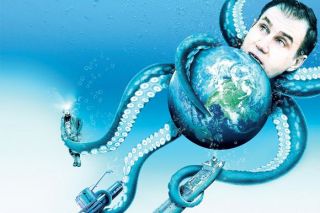
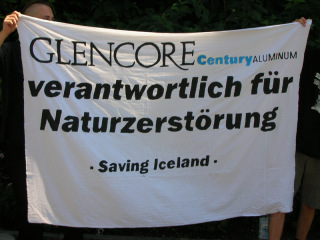
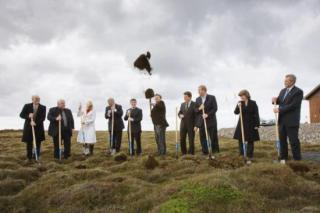
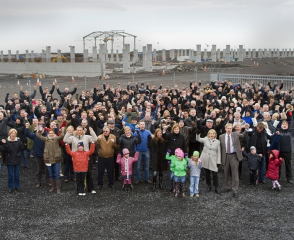
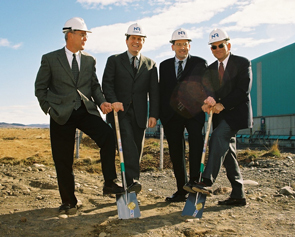
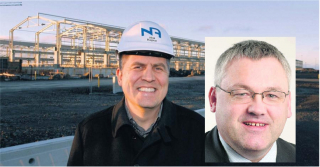
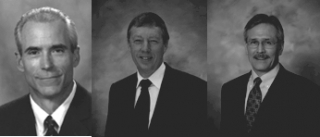
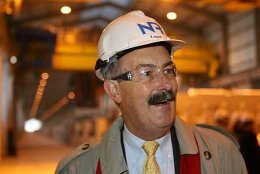
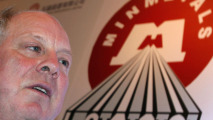
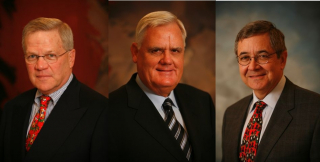

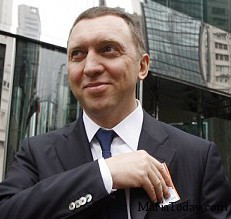

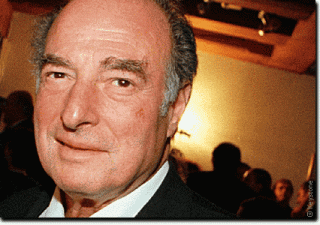

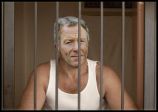
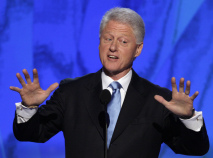
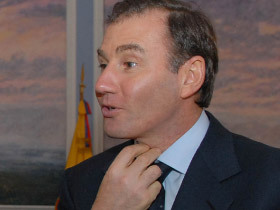
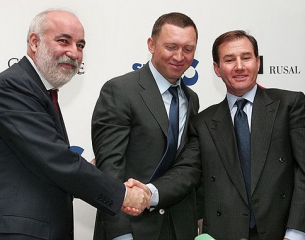
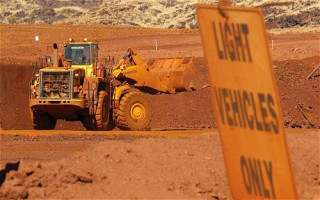
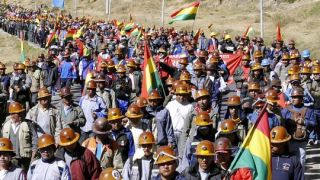
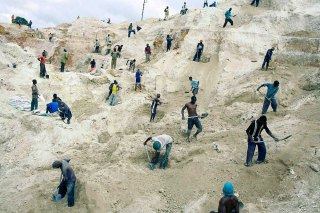
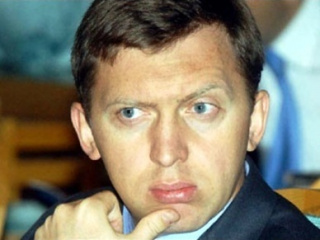
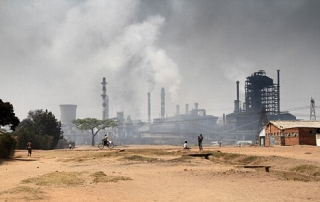
What a nasty piece of company this Glencore monster is!
Thanks a lot, Dónal, for providing us with an insight into this terrifying shadow-cave of the mining business.
A bit of an update:
“Century Aluminum Co said in a news release on Tuesday that Logan Kruger, its Chief Executive since December 2005, resigned and filed a lawsuit against the aluminum producer, alleging a breach of contract and wrongful termination.
The company said the claims were without merit and it intends to “vigorously defend itself against them,” without elaborating.
Requests from the primary aluminum producer for addition information about Kruger’s termination went unanswered.
Century Aluminum named Chief Financial Officer Michael Bless as acting president and chief executive, replacing Kruger.”
Read the whole article here: http://www.reuters.com/article/2011/11/15/aluminum-centuryaluminum-idUSL3E7MF2LL20111115
if you can’t beat them, join them. or, infiltrate them. not dismissing the corruption and human tragedies, but it would seem that the best way to dismantle them would be from the inside out
Donal
Fantastic article. I have referred to this post on my blog re. Glencore, the WFP and Africa today, in relation to food aid.
Keep up the good work.
Here is a bit more about above-mentioned Lewis “Scooter” Libby, from an interesting article on Libby on the one hand, Bradley Manning on the other:
“After 9/11, I. Lewis “Scooter” Libby, a Yale graduate with a law degree from Columbia, and fellow neo cons plotted to twist and invent “intelligence” data to convince the public that Saddam Hussein possessed weapons of mass destruction, so as to build a case for invading Iraq.
From 2001 to 2005, Libby served as Assistant to the
Vice President for National Security Affairs, Chief of Staff to the Vice President of the United States and Assistant to President George W. Bush.
Libby and fellow neo cons stressed Bush’s dubious claim that “the British government has learned that Saddam Hussein recently sought significant quantities of uranium from Africa.””
The full article is here: http://dailycensored.com/2012/03/08/scooter-libby-v-bradley-manning-malice-v-nobility/
Incredible bastards. Your work provides wind to my ailing wings. Any info as it relates to Latin America is appreciated. I am a gonzo style journalist. The last three years researching the energy sector and now beginning to publish. Sign the pledge to give Earth legal rights. Mac.
B.E. Macomber, I hope that you will include in your gonzo journalism that the people who run such multinational corporations like Alcoa that produce materials for the cancerous military industrial complex, the politicians who are bribed by such companies and then work for them after they retire from politics (the proverbial revolving door), the construction companies that benefit from these projects and the international banks that loan them all money based on a fake fiat system of finance are nothing but parasites that must be removed from the body of humanity before they destroy us all and the planet. They have had their hand in the cookie jar for way too long.
People have to use their critical thinking skills and not believe the bullshit or reindeer dung (as you would have there in Iceland) these parasites tell you. They profit first, the people and the communities, very little and usually never. You will be left holding a huge debt as John Perkins (Confessions of an Economic Hit Man) will educate you on and then, you will have to sell your natural resources for pennies on the dollar or aurar on the krona as you might say there.
I have been to Iceland many times and have friends in Husavik. You may think your community will thrive, but, these parasites will destroy your beautiful nature and tourism industry and then, after they have depleted your natural resources and irrevocably destroyed your country, they will pull out (and they always do), and you will have nothing left, only generations of diseased and dying Icelanders from the by-products of the aluminum production and the extinction of natural species that only God himself could have given you.
I no longer use aluminum foil or drink soft drinks contained in cans produced by these genocidal multinational corporations. If everyone tuned out of “The Matrix” the illusion that you think is real and turned on to how these bastards operate, we could effectively put them out of business cause there would be no more demand for their products. That is the only way.
Thank you Dónal.
Canada’s federal government just gave the go ahead for Glencore’s bid to acquire Regina-based grain handler Viterra Inc.
http://www.theglobeandmail.com/report-on-business/glencore-international-receives-federal-approval-for-viterra-acquisition-bid/article4418018/
“You must see these gruesome photos because they represent what is happening in Tampakan, South Cotabato where Xstrata-SMI has an application for a mining project. Members of a family leading the opposition against the mining project were killed in cold blood. Could they be a symbol of our brand of ‘development’, which is for government and for multinatinals, not for Filipinos?”
http://www.sisterraquel.com/2012/10/eastwind-journals-46-the-tampakan-massacre/
Century Aluminum Holds West Virginia Retirees Hostage in Exchange for Cheap Power:
http://truth-out.org/news/item/15108-corporate-giant-century-aluminum-holds-west-virginia-retirees-hostage-in-exchange-for-cheap-power